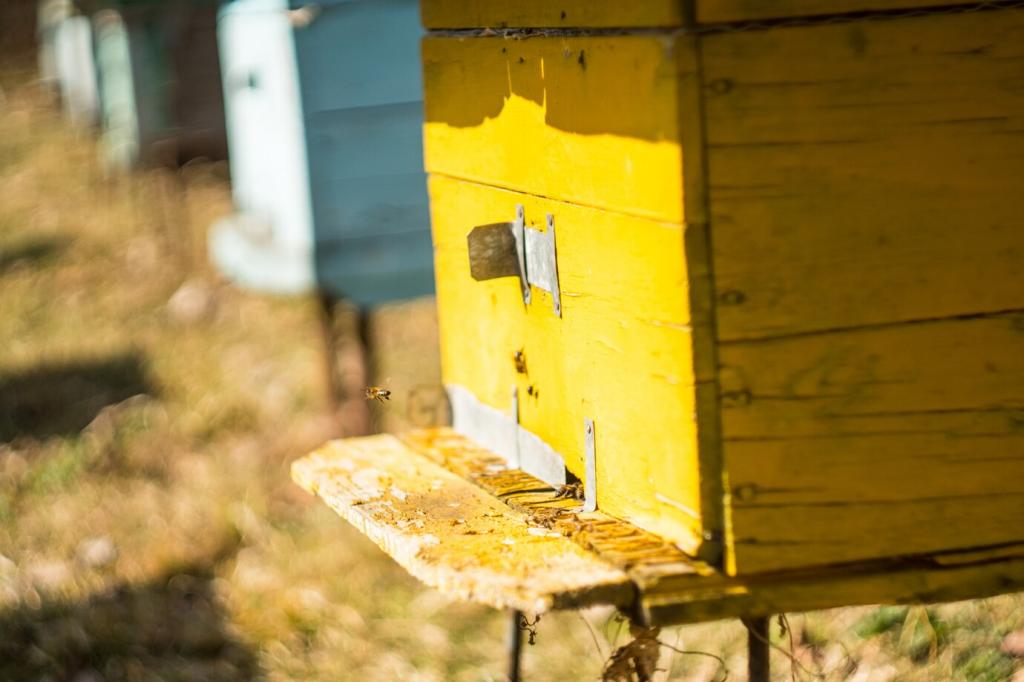Health and Environmental Advantages of City Beekeeping
City beekeeping, also known as urban apiculture, is rapidly gaining popularity across metropolitan landscapes globally. This rising trend is more than just a hobby for city dwellers; it brings a spectrum of benefits that touch upon public health, environmental sustainability, and community well-being. Far from being a rural phenomenon, beekeeping in urban environments is proving essential for pollination, biodiversity, education, and the direct local supply of natural honey. As cities seek innovative ways to green their landscapes and promote healthier living, city beekeeping offers a sweet solution where nature, health, and urban life interconnect harmoniously.

Enhancing Urban Biodiversity
Supporting Plant Diversity with Urban Pollinators
When bees are introduced into cityscapes, they naturally seek out a wide variety of flowers and plants for nectar and pollen. This routine activity significantly increases cross-pollination rates among urban flora, benefitting community gardens, rooftop plantations, and public parks. The impact is visible in the richness of plant species, improved yields for urban farmers, and a cascade effect that supports insects, birds, and other wildlife. As a result, city landscapes transition from concrete jungles to vibrant, living networks teeming with diverse plant and animal life, all thanks to hardworking pollinators.
Creating Habitats for a Range of Wildlife
Urban beekeeping does not only uplift bees themselves but also inadvertently creates more favorable conditions for a broad spectrum of urban-dwelling creatures. Flowering plants nurtured by bees attract butterflies and birds, turning patches of green into miniature wildlife havens. These new habitats act as critical refuges for pollinators facing challenges in more traditional rural settings. The result is a synergistic boost in urban biodiversity, further strengthening a city’s ecological resilience.
Restoring Ecological Balance in Intensely Developed Areas
In densely built environments where nature often takes a backseat to architectural expansion, beekeeping serves as a small but mighty agent of restoration. Maintaining apiaries in parks, unused lots, or rooftop gardens aids in balancing the natural cycles disrupted by urbanization. Bees contribute to seed and fruit production, preventing the dominance of aggressive, non-native plant species and supporting the regeneration of native flora. This ecological stewardship, achieved through the simple act of beekeeping, showcases a practical commitment to healing city ecosystems.
Previous
Next
Promoting Human Health Through Local Honey
Consuming honey produced by local bees can help build resistance to pollen-related allergies prevalent in urban areas, thanks to gradual exposure to trace amounts of pollen native to the region. Over time, this can stimulate the body’s immune response and diminish allergic reactions. Furthermore, the presence of antioxidants and antibacterial components in raw honey bolsters general immunity, potentially reducing the incidence and severity of seasonal illnesses for city dwellers.
Advancing Sustainable Urban Agriculture
Improving Yields in Urban Gardens
Bees are critical agents of pollination, directly influencing the productivity of community gardens, private allotments, and rooftop farms that are increasingly prevalent in cities. With better pollination, fruit and vegetable yields rise, maximizing food production on limited land. These productive green spaces supply fresh, nutritious produce to city residents, demonstrating that densely populated environments can contribute meaningfully to local food systems with the help of urban beekeeping.
Minimizing Carbon Footprint in Food Supply Chains
Localizing honey production within the city eliminates the need for long-distance food transportation and refrigeration, thereby shrinking the carbon footprint traditionally associated with agricultural supply chains. Urban beekeeping encourages a closed-loop system where honey and hive products travel directly from producer to consumer, greatly reducing packaging waste and energy consumption. This approach aligns seamlessly with sustainable city planning and emission reduction goals, promoting a cleaner air environment for everyone.
Encouraging Community Engagement in Sustainability Initiatives
The cooperative spirit of beekeeping invites participation from diverse community members, inspiring collective investment in urban sustainability programs. Educational workshops, co-owned hives, and neighborhood projects empower residents to take part in environmental stewardship. These initiatives not only increase green coverage and pollinator presence but also help foster a culture of sustainability, where collective responsibility for the city’s ecological future is embraced and celebrated.
